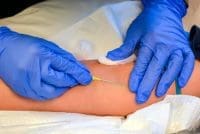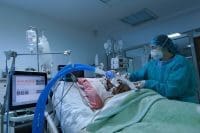The growing reuse of single-use devices
The reprocessing of single-use devices (SUDs) is becoming common in the healthcare industry. Some of the nation’s best hospitals support the practice of reprocessing SUDs, citing significant cost savings and reduced environmental impact through a decrease in healthcare
waste. (See By the numbers by clicking the PDF icon above.) Maintenance of high standards, continued research, and establishment of ethical policies help address safety concerns associated with the practice for patients and healthcare workers.
The 2010 ANA resolution titled “Safety & Effectiveness of Reprocessed SUDs in Healthcare” supports reducing the amount and toxicity of healthcare waste by improving end-of-use product management, researching ethical and safety issues associated with using SUDs,
and disseminating research about reprocessed SUDs.
Regulatory requirements of the U.S. Food and Drug Administration (FDA) ensure the safety and effectiveness of SUDs. Reprocessed SUDs that meet FDA requirements can be considered safe for patient use and can effectively be treated as new devices. This safe reprocessing
benefits the environment by reducing the amount of waste that otherwise would end up in landfills and by decreasing the amount of dioxins released into the atmosphere, which results in less air pollution.
Currently, FDA is reviewing its policy regarding the reuse of medical devices. It has been holding numerous meetings and conferences with industry leaders, health
professionals, academics, government agencies, and consumers to ensure the safety and efficacy of reused SUDs, based on existing and continuing research. Good
manufacturing practices provide a standard to ensure that reprocessing of SUDs is safe and effective.
In 2002, the FDA proposed a categorization scheme for all SUDs. Called the Review Prioritization Scheme, it assigns risk categories to frequently reprocessed
SUDs as follows:
- Category 1: noncritical; has contact with but does not penetrate the skin
- Category 2: semi-critical: has contact with mucous membranes
- Category 3: critical; has contact with sterile tissues.
The healthcare system must be able to ensure that all SUDs meet FDA requirements. In addition, healthcare systems must be able to maintain records for all reprocessed
devices, pass all required quality assurance tests, and require
that all decisions be made by a team that includes administration, legal department, risk-management experts, and staff. Healthcare facilities are responsible for
making good decisions regarding SUDs and reexamining which patient-care products are safe for single use only and which can be safely reprocessed and reused.
Healthcare professionals also need to be aware of the occupational issues surrounding SUDs. For example, pyrogenic reactions can be produced by SUDs contaminated with endotoxins linked to certain bacteria. Toxicity and chemical residues left in SUDs can
lead to chemical exposure. Healthcare administrators must be mindful of environmental issues associated with these decisions, especially as these can greatly influence public perception.
Nurses must be aware of the benefits of reprocessed SUDs, while recognizing their occupational, environmental, and ethical issues, to make them a safe alternative
for patients without compromising the quality of care.
José V. Cárdenas is a senior policy fellow at ANA.

















